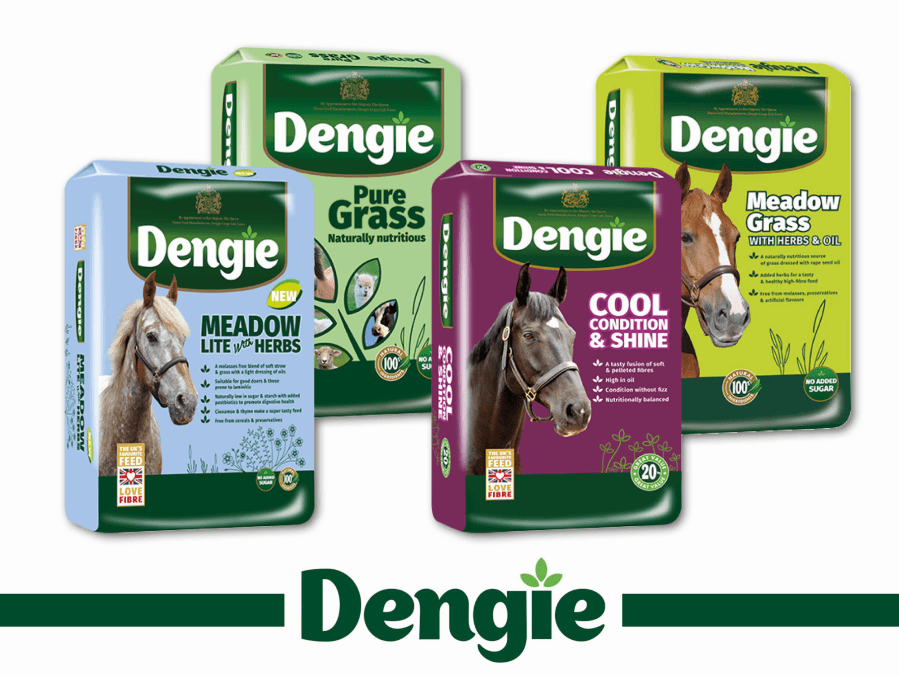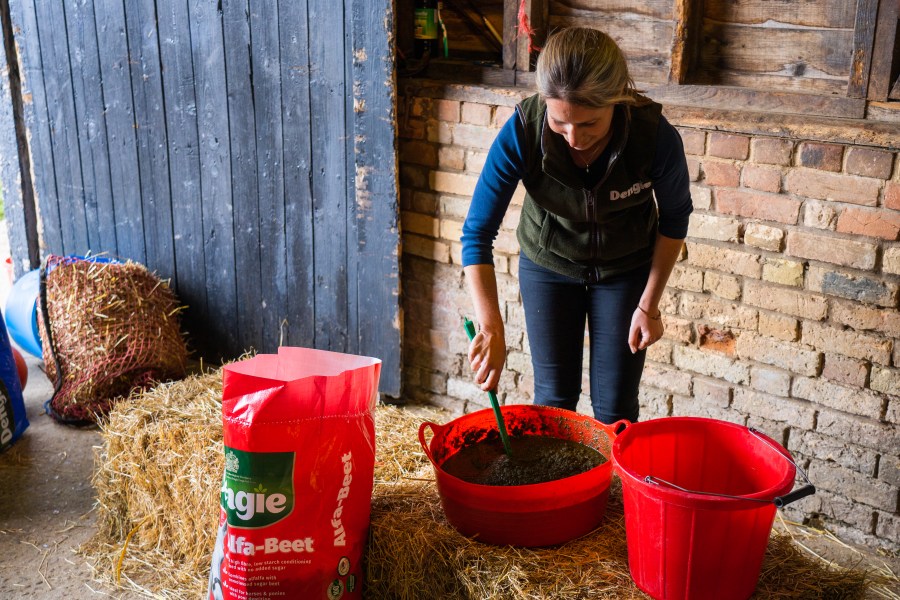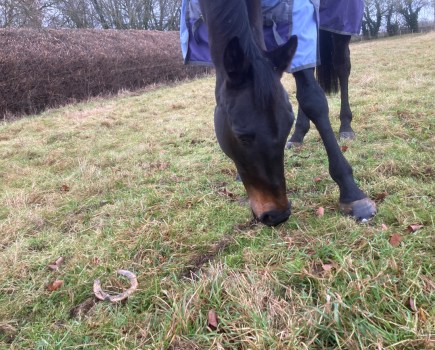ADVERTISEMENT FEATURE
The most commonly asked questions relating to veterans on the Dengie Feedline are addressing weight loss, what to feed a horse with PPID (Pituitary Pars Intermedia Dysfunction — also known as Cushing’s disease) and what alternatives to forage are available for equines with poor teeth. This is our advice as to how best to manage these issues.
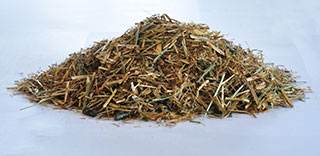
Dengie Cool, Condition & Shine
Firstly, weight loss. If your veteran starts to lose weight it is important to try to establish the root cause and not just assume it is due to ‘old age’, as this will help determine the best course of action for managing the situation. Many senior mixes and cubes have higher levels of starch than would be suitable for some horses and ponies, especially those with a history of laminitis.
Dengie Cool, Condition & Shine is a high calorie, low starch fibre feed that will help to promote weight gain and improve coat condition.
What to feed a horse with PPID
The underlying endocrine problem of PPID can increase the risk of laminitis in horses and ponies. Those that have equine metabolic syndrome as well as PPID are at an even greater risk of laminitis. The trigger that ultimately results in the clinical signs of laminitis is often diet-related and is usually due to excessive consumption of sugar and starch.
Therefore, when looking for suitable feeds for horses and ponies diagnosed with PPID, the advice is to choose products that are low in sugar and starch. The recommendation is that the non-structural carbohydrate (NSC) content, which is a combination of water-soluble carbohydrates (WSC or ‘sugar’) and starch, is less than 10-12% when combined.
At a recent BEVA Congress, the use of medications for PPID such as pergolide was discussed. You may be interested to know that there is no evidence that pergolide improves insulin sensitivity or therefore reduces the risk of laminitis. Another really useful piece of advice was that pergolide shouldn’t be left in feeds made up to be fed at a later time. As soon as it is exposed to air and/or water in the feed, the pergolide will deteriorate and so may therefore be less effective when it is consumed.
What to feed horses that struggle to chew long forage
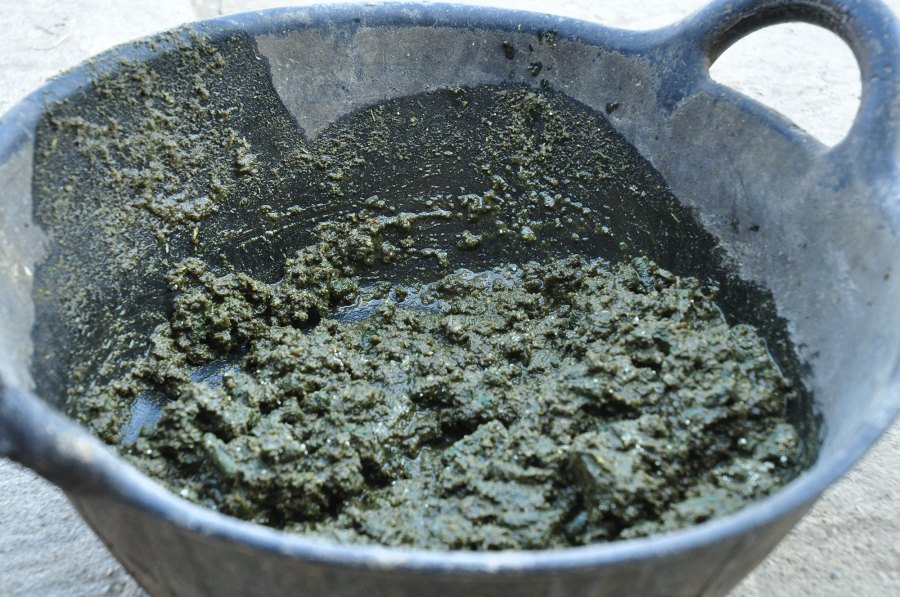
Dengie Alfa-Beet is a soaked feed
When horses are stabled, hay and haylage are usually their main fibre source. The long length of these forages can sometimes cause a veteran horse problems, as their teeth become less effective. They can spend hours chewing only to create balls of forage that they then drop (quid).
In a trial comparing the amount of three different types of fibre — hay, Dengie Hi-Fi Senior and Dengie Alfa-Beet — that horses with poor dentition were able to consume within a certain time period, the reduction in intake was most significant for hay. Those with poor teeth consumed up to two-thirds less hay in the same time period as those with no dental issues.
The smallest difference was with the soaked product and a slight reduction was seen with the short chop product. Some of those horses with dental issues declined to eat the hay completely, whereas the soaked product was not refused by any of the horses.
Feeds sympathetic to the digestive system
Dengie’s range of fibre feeds, both short chopped and soaked, are all sympathetic to the horse’s digestive system and several of the products can be used as partial or full hay replacers for veteran horses to overcome the challenges of poor dentition.
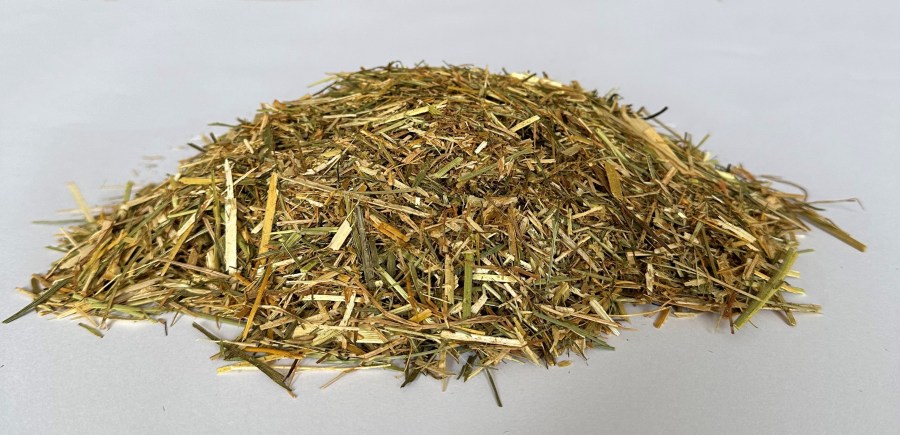
The new Dengie Meadow Lite with Herbs is low in calories
Dengie Meadow Lite with Herbs is a new addition to the Dengie range and is really low in calories, making it ideal for good doers that need a forage replacer. Higher calorie options that can be used to replace forage include Dengie Pure Grass, which can be used as a complete forage replacer, and Dengie Meadow Grass with Herbs & Oil, which can be used as a partial forage replacer.
The fibre particles in soaked products such as Dengie Alfa-Beet tend to be ground much smaller which makes them even easier to chew and improves digestibility too. If a horse can manage some short chop fibre, then it is beneficial to feed some alongside the soaked feeds to help increase chew time, but only if it doesn’t cause the horse to quid more.
For friendly feeding advice contact the Dengie Feedline on 01621 841 188 or visit dengie.com and complete our Feed Advice Form
